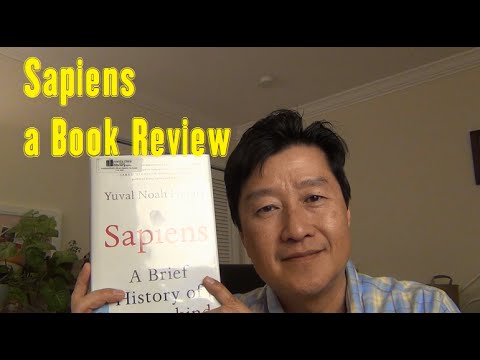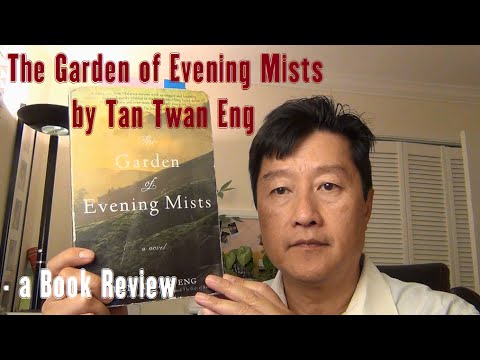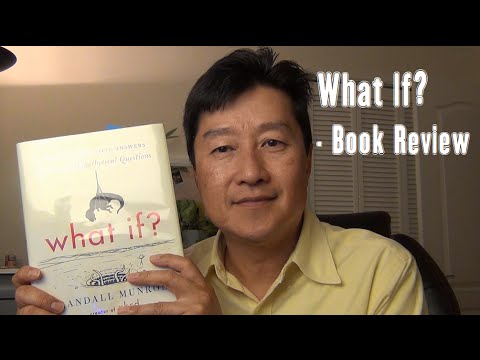This is a tremendously deep book – so much insight about how homo sapiens came to dominate the world since 70,000 years ago. Even if you don’t believe in evolution, this book will give you an insight on how the agriculture and industrial revolutions changed the course of human history. But if you probably would like how he refers to religion as “myths.”
Key takeaways:
– Home Sapiens came to dominate the earth through our unfair advantages: bigger, cognitive brain and our mutual belief in “myths,” though we were pretty insignificant in the beginning.
– Many truths we currently believe are actually myths: religion, human rights, declaration of independence, money, and others.
– Biggest leap-forward was when we recognized we don’t know everything.
– Arts serve to create stories. The better stories like money, and Christianity, the more successful they are.
– Past conflicts or wars can be attributed to not being able to reconcile our stories – instead of food or others.
– Pessimistic end to homo sapiens.
– Sapiens rich can be upgraded now instead of an egalitarian background/DNA.
– The book may not appeal to the religious or non-believers in evolution.
– It’s more a prophesy based on our homo sapiens history.
A summary:
Part I: The Cognitive Revolution:
1. An Animal of No Significance:
The Big Bang happened about 13.5 billion years ago. About 6 millions years go, our grand mother was born to an ape. There were a few other homo species like homo rudolfensis, erectus, soloensis, floresiensis (dwarves), and neanderthalensis. They were coexisting about the same time. Homo sapiens started to form culture around 70,000 years ago. Agricultural revolution happened around 12,000 years ago and the Scientific Revolution about 500 years ago. Our jumbo brain consumes 25% of our body energy but only 2~3% of the total body weight.
2. The Tree of Knowledge:
How homo sapiens can cooperate in a group larger than 150 members can be attributed to our ability to believe in “myths” that exist in our collective imagination. In authors’ words, religion, nationalism, law and justices, human rights, corporations (e.g.”Peugeot brand”) and money are all “myths.” We had since lived in the duality of “reality” like rivers, trees and lions, and myths, increasing more powerful. From myths, there arises our ability to trade (trust in money) and cooperate (tribal spirits) and pass on to next generation (culture).
3. A Day in the Life of Adam and Eve
For nearly the entire history of our species, Sapiens lived as foragers. Our brains, minds and eating habits are adapted to a life of hunting and gathering. Dogs were domesticated about 15,000 years ago. Sapiens did mostly gathering, including how to hunt and make/fix weapons, than hunting. Evidences showed that Sapiens’ brain shrunk since then. By the author’s account, this was a better life – not working as long hours – than the agriculture era that followed. They also had diverse an wholesome food sources. Not all roses though, old, sick people were left behind or killed off and infant mortality was high – intentional or unintentional.
4. The Flood
Colonization of Australia, isolated from all other continents, happened around 45,000 years ago most likely by the Sapiens in Indonesia, who were capable of sailing long distance. This was when homo sapiens climbed to the top of the food chain. The settlers of Australia transformed the Australian ecosystems beyond recognition. Most of giant marsupial mammals like wombat, giant kangaroos, and etc., were gone within a few thousand years of Sapiens’ arrival. Same thing can be said about Sapiens’ arrival in America. Sapiens seem to be the culprit in the extinction of many large-size animals – we are the deadliest animal.
Part II: The Agricultural Revolution
5. History’s Biggest Fraud
About 10,000 years go, Sapiens began to manipulate the lives of few animal an plant species. More than 90% of the calories that feed humanity come from the handful of plants our ancestors domesticated between 9500 and 3500 BC – wheat, rice, corn, potatoes, millet and barley. By the first century AD the vast majority of people throughout most of the world were agriculturists. The agricultural Revolution was history’s biggest fraud, according to the author, as farmers’ lives generally are more difficult and less satisfying than those of foragers but it has the ability to keep more people alive under worse conditions. Whose fault is it? The handful of plant species domesticated homo sapiens, rather than vice versa. There is a discrepancy between evolutionary success and individual suffering.
6. Building Pyramids
The Agricultural Revolution made the future far more important than it had ever been before. Farmers must always keep the future in mind and work in its service. They’re busy plowing the field while very few people have been making history; the French Revolution was started by some affluent lawyers. The social norms that sustained the “empires” were based on belief in shared myths, for example, American Declaration of Independence and Hammurabi’s Code, equality, liberty and human rights. These myths or imagined order is always in danger of collapse; they vanish once people stop believing in them. People must be “brainwashed” since childhood of the imagine order. Three factors the keep people believe in the imagined order: a. the imagined order is embedded in the material world. b. the imagined order shapes our desires. c. he imagined order is inter-subjective, something that exists within the communication network linking the subjective consciousness of many individuals. To change an existing imagined order, we must first believe in an alternative imagined order.
7. Memory Overload
Writing was invented for record keeping between 3500~3000 BC due to our mental limitation and the amount of people and property exceeded a certain threshold.
8. There is No Justice in History
We lacked the biological instincts to sustain an human society but we managed to do so with imagined order and devised scripts. Hindus come up with the myth that some cosmic forces made one caste superior to others. But these hierarchies are all of product of human imagination, but they enable complete strangers to know how to treat one another. Throughout history, concepts of pollution and purity have played a leading role in enforcing social and political divisions and have been exploited by numerous ruling classes to maintain their privileges. In America, the purity was upheld by the racial segregation. Women were treated as properties of men.
Part III: The Unification of Human
9. The Arrow of History
Since French Revolution, people come to believe in both equality and individual freedom as fundamental values. Yet the two conflict with each other – cognitive dissonance. Small, simple cultures gradually coalesce into bigger and more complex civilizations. History is moving relentlessly towards unity, for examples, the “ethnic” cuisine. Everyone was “us’; there was no longer ‘them’.
10. The Scent of Money
Osama Bin Ladden hates everything about American except for the American dollars. Money is needed because of specialization and trading with strangers and to avoid bartering and storing wealth. Cigarettes can be used in place of money in prisons and POW camps. More than 90% of all money ($60 trillion) are in our accounts and less than 10% in physical money. Money is exchanged because of people trust the figments of their collective imagination and is the most universal, efficient system of mutual trust ever devised. Gold and silver turned into a single transnational and transcultural monetary system, despite being traded by people of different religion, languages, and economic/political spheres. Money is based on two universal principles: a. universal convertibility, b. universal trust. The dark side of money is that the world is in danger of becoming one big and rather heartless marketplace.
11. Imperial Visions
Historically, empires are defined as a political order with 1)rule over a significant number of distinct peoples, 2) flexible borders and an unlimited appetite. There were several empires including Rome, China’s Qin dynasty, Aztec and British empire. They reduce human diversity, forging out of them new and much larger groups. Empires contribute to philosophy, art, justice, charity, common languages, law enforcement, urban planning, standardization of weights and measures, taxes and etc. India, in a way, benefited from British rules for almost a hundred years. As of today, states are fast losing their independence and open to the global market, the interference of global companies and global public opinion and international judicial system. The global empire is being forged before our eyes.
12. The Law of Religion
Religion has been the third great unifier of humankind along with empire and money. Religion is a system of human norms and values that founded on a belief in a superhuman order, not the product of human whims or agreements. Some history of religions like polytheism, dualism, Buddhism, is introduced here. A simple law of Buddhism: suffering arises from craving; the only way to be fully liberated from suffering is to be fully liberated from craving – train the mind to experience reality as it is.
13. The Secret of Success
The people who knew the period best – those alive at the time – were the most clueless of all. How Christianity became the official Roman state religion was and is still a puzzle. History cannot be explained deterministically and it cannot be predicted because it’s chaotic. So many forces are at work and their interactions are so complex.
Part IV: The Scientific Revolution
14. The Discovery of Ignorance
For the last 500 years, the human population have increased 14-fold, GDP 240-fold, and energy consumption 115-fold. Amazing. The historical process that led to the first atom bomb testing in Alamorgordo, New Mexico is called the Scientific Revolution by the author. The modern science differs from all previous knowledge in 3 areas: 1) the willingness to admit ignorance (ignoramus), 2) the centrality of observation and mathematics, 3) acquisition of new powers. Prior, you ask someone wiser or it’s not important to know (leave it to God). Life insurance was first applied to clergymen through the use of mathematics in 1765. Until the Scientific Revolution most human cultures did not believe in progress. Progress and Power = Ignorance + Scientific Discoveries.
15. The Marriage of Science and Empire
The West dominated the last 100 years, as attributed by the author, because the Chinese and Persians lacked the values, myths, judicial apparatus and sociopolitical structures in the West. And the European imperialists set out to distant shores in the hope of obtaining new knowledge along with new territories. Discovery of America was the foundational event of the Scientific Revolution. This ignited their “unparalleled and insatiable ambition” to explore and conquer. The Spaniards led by Cortes and Pizarro, exercised genocide in South America including demolishing the Aztec Empire.
16. The Capitalist Creed
Capitalism fueled the Scientific Revolution. What enables banks and the entire economy to survive and flourish is our trust in the future – the sole backing for most of the money in the world.
A host of new, wonderful opportunities open up if we can build things in the present using future income, leverage “credit.” Adam Smith taught people to think win-win, greed is good and by becoming richer I benefit everybody – egoism is altruism. Capitals consists of money, goods and resources that are invested in production. The European conquest of the world was financed through credit than taxes and directed by capitalists whose main ambition was to receive maximum returns on their investments. Dutch, rather than Spain, was successful because they win the trust of the financial systems by repaying their loan on time and in full and their judicial system enjoyed independence and protected private property rights. Capital and politics played a huge role in Britain-China’s opium war, Greece’s independence from Turkey, Egypt’s paying off the Suez Canal debt, and etc.
17. The Wheels of Industry
The wheel that drives the Scientific Revolution early was the steam engine; it improved the textile industry. The capitalist-consumerist deal is that people are promised a paradise, but only the rich remain greedy and spend their time making more money, and that the masses give free rein to their cravings and passions and buy more and more.
18. A Permanent Revolution
Humankind is driving many species to extinction and might even annihilate itself. Almost everything we do now must be done on time. The biggest social revolution is the collapse of the family and the local community and replacement by the state and the market. Over time, by liberating the individuals the states and markets used their growing power to weaken the traditional bonds of family and community. Today, humankind has broken the law of the jungle. There is at least real peace due to the much higher price of war and the profits declined as wealth consists mainly of human capital, not physical.
19. And They Lived Happily Ever After
This chapter addresses if we’re happier now with improved material conditions than before the collapse of the family and community. Being satisfied with what you already have is more important than getting more of what you want. It’s all a matter of expectations. Also, our happiness is determined by the complex system of nerves, neurons, synapses and various biochemical substances such as serotonin, dopamine, and oxytocin. Another way to look at it: a meaningful life can be extremely satisfying even in he midst of hardship, whereas a meaningless life a terrible ordeal no matter how comfortable it is. Or someone may say it’s a “self-delusion.” Buddhism has the cure for the self-delusion by paying no attention to the inner feeling nor the external conditions/achievement. This “happiness” history is a gap historians have not filled.
20. The End of Homo Sapiens
Until recently, Sapiens are incapable of breaking free our biologically determined limits, though we had circumvent it through selective breeding of animals. We’re now beginning to break the laws of natural selection, replacing them with the laws of intelligent design. By playing with DNA/stem cells, scientists are playing gods through 3 methods: biological engineering, 2) cyborg engineering, 3) engineering of inorganic life (robots). There are lots of ethical, social and political questions remain. The upper wealthy class may be able to create further inequality through medical and biological engineering. The new singularity when all the concepts we give meaning to our world will become irrelevant. The Frankenstein myth that confronts Homo Sapiens that the last days are fast approaching may become the truth soon. “What do we want to become?” may be the question we’ll soon be asking.
My favorite videos:
This is a short intro by the author:
The is the complete talk:



